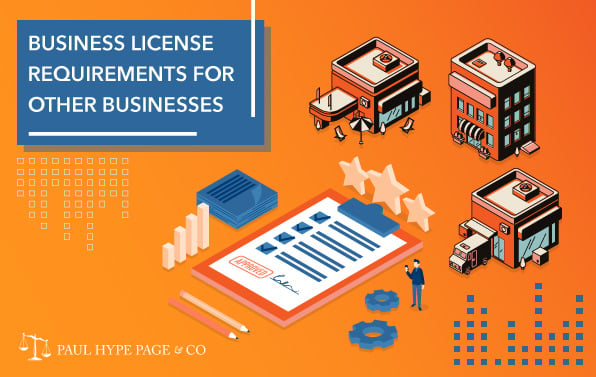What’s in this article
Real estate is a property consisting of land or buildings. Any permanent improvements attached to the land, whether human-made or natural, including trees, water, minerals, homes, buildings, fences, and drainages can be considered as real-estate. It also includes all the rights inherent in the ownership of the real estate.
Unlike personal property, real estate does not attached to lands such as boats, furniture, jewelry, vehicles, and farm equipment permanently.
- Mortgage-Backed Securities (MBS)
This is another option for investing in real estate. They are not so popular, but they are still in existence. They carry a degree of risk, just like all investments. However, they may also offer portfolio diversification. - Understanding Real Estate
The terms real estate, land, and real property are often used interchangeably, but subtle differences can be identified. Land indicates the earth’s surface from the air space to the core of the earth. It includes minerals, trees, and water. On the other hand, real estate means the lands and all man-made additions, including buildings and houses.
Physical Characteristics of Real Estate
Three physical characteristics of land has differentiated it from other assets in the economy. These are:
- Immobility. This is about the geographical location of any parcel of land. It cannot be changed.
- Indestructibility. The land is desirable and indestructible. The structures on it may be destroyed or razed down, but the land will remain.
- Uniqueness. There are no two parcels of land that are the same; every parcel differs geographically.
Economic characteristics of real estate
The economic characteristics of land influence its value as an investment. Below are the characteristics:
- Location or area of preference. Location is one of the most important economic characteristics of the land. Location refers to people’s choices and tastes regarding a given area, based on convenience, reputation, and listing.
- Scarcity. The land is not considered rare; however, total supply is scarce.
Categories/Types of Real Estate
There are five main categories of real estate. These are residential, commercial, industrial, raw land, and special purpose/use.
- Residential
Property that used for residential purposes. For examples: condos, duplexes, cooperatives, and single/multifamily residences. - Commercial
Property that used exclusively for business purposes such as apartment complexes, restaurants, offices, shopping centers, and parking facilities. - Industrial
These are properties use for development, manufacturing, distribution, and storage. Examples include warehouses, factories, and power plants. - Raw land (or simply land) is vacant, undeveloped, and agricultural land, such as ranches, farms, and timberland.
- Special Purpose / Special use. This is a type of property that public use Examples include parks, government buildings, cemeteries, schools, and places of worship.
Guide to starting a real estate agency in Hong Kong
You can kick start your journey as a real estate agent by helping family, friends, and other clients in addition to representing yourself in your investment deals. There is a lot of legal stuff you must learn to become a real estate agent and be licensed.
However, there are various advantages to having a real estate license. You will have the access to real estate investment deals, networking opportunities, earning commissions, taking control of your deals, and educational opportunities that help one understand a different aspect of the business.
These are the different steps to follow:
1. First, become a real estate agent. There are different steps followed to be an agent:
- Research your state’s requirements
- Take a pre-licensing course.
- Take the licensing exam.
- Consider becoming a realtor.
- Apply to the Estate Agents Authority of Hong Kong together with the required documents and the necessary fee.
2. Ensure your company is incorporated as per the requirements outlined in the Companies Law and must have at least one company director who is himself a licensed estate agent. The steps are simple. Someone can enlist the assistance of company formation agents who help open a new company and afterward make all the necessary document submissions to obtain the license. He/she must ensure the following steps are completed:
- Obtaining an original land approved company name;
- Drawing up the company documents
- Registration with the Companies registry
Estate Agents’ License (Company)
Anyone wishing to be granted an estate agent’s license (Company), ensure the following in addition to being a company:
- Have at least one director with a valid license
- Have a licensed agent to undertake the Company’s business
Being a real estate agent can be expensive
The payment structure and expenses with your broker, real estate agents, can end up paying a lot of money in annual fees, and this might eat into your profits as an investor. There are fees like lockbox fees, realtor designation fees, broker monthly desk fees/office fees, and commission to a broker.
How the Real Estate Industry works
The industry does not consist only of salespeople and brokers, as many people think. Many people acquire a livelihood through real estate. They earn a living in property management, appraisals, construction, counseling, and financing besides sales. Apart from that, accountants, architects, lawyers, and surveyors depend on the real estate industry to make a living as well.
Real Estate Market
This is the buying and selling of land and buildings. It is all properties available for sale in a given area. Declining home sales have improved the real estate market. It isn’t easy to convert to cash.
The real estate market’s size and scale make it an attractive and lucrative sector for many investors.
The real estate market works according to the laws of supply and demand. It is just like any other market whereby if supply exceeds demand, prices go down and vice versa. However, several factors like locality, durability, and seasonality set it apart.
- Locality
The many attributes of real estate make prices and market activity specific to one is. It is not portable. It cannot be transported to where prices are high, and it cannot be stored. The determinants of the value of that home are limited to the area within those few miles. All of this serves to make real estate a local good in which prices vary widely even within the same region. - Durability
Real estate persists and appreciates it. - Seasonality
The real estate activity varies by season. In the winter, when the climate is harsh in many places, activity reduces. But in supper, it picks up. This makes it difficult to compare real estate figures month-to-month but is adjusted to provide an estimate of what it would look like all else held constant.
Economic principles drive the real estate market, but not the whole real market. Examples of drivers are family and business changes that may cause people to relocate.
What are the key factors driving the real estate market?
- Demographics
This is the composition of a population, such as gender, age, race, income migration patterns, and population growth. A major shift in the demographics of a nation can significantly impact real estate trends for several decades. - Interest Rates
Interest rates impact the price and demand of real estate-lower rates, bringing in more buyers, reflecting the lower costs of getting a mortgage, and expanding the demand for real estate, which can then drive up prices.
For those intending to buy homes using a mortgage, it is advisable to research interest rates first. - The Economy
The overall health of the economy is another factor that affects the value of the real estate. The cyclicality of the economy can have varying effects on different types of real estate. - Government Policies and Subsidies
Legislation can have a sizable impact on property demand and prices. The government can boost demand for real estate through tax credits, deductions, and subsidies.
Summary
Anyone interested in investing in real estate should have a license. Hong Kong takes the issues of licensing real estate agents and agencies seriously. Therefore, venturing into the real estate business without a license is an offense that attracts a penalty of up to 2 years of imprisonment or a fine of $500,000. We, at Paul Hype Page, will help you obtain all the relevant permits for your real estate agency business. Contact us today!






